Halo campaigns used to be linear and straightforward experiences. All that's changed with Halo: Infinite, which effectively turns the Halo franchise into a FPS-RPG hybrid with emphasis on replayability. This is actually a tactical decision that folds perfectly with Microsoft's service-based business model for Xbox.
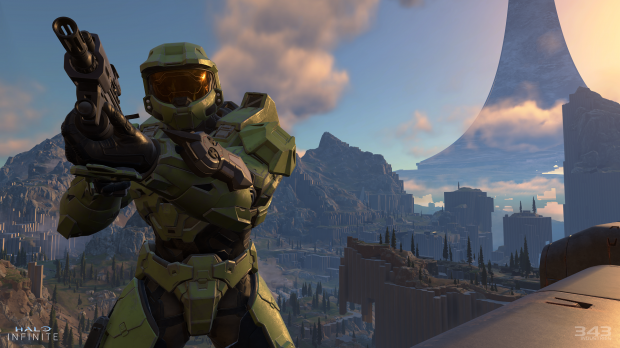
Back in March 2019, I asked a question: What if Halo: Infinite wasn't just a game, but a kind of platform built around engagement? I predicted Infinite could have a wide, sweeping campaign that just keeps on delivering content with a new evolved scope. My predictions were based around Microsoft's business model for Xbox, which prioritizes engagement and services, and subscription retention via content delivery. This content is specifically built to feed the business model. Halo: Infinite is one such game.
Today 343i made one thing clear above all others: Halo is no longer just a shooter. It's now an RPG, too. The question I asked over a year ago finally has an answer, and it has changed Halo forever.
Halo: Infinite has all the trappings of an engagement-driven live game: There's tons of missions, there's upgrade paths for your character, massive open-ended exploration set across the biggest map in Halo's history, and replayable battles that serve as setpieces for chaos. It's basically a big playground that's wrapped up in a storyline. Halo vets will recognize that Infinite's campaign resembles a mixture of Firefight and Spartan Ops.
So why did 343i and Microsoft make the change?
It's simple. Halo: Infinite, just like all of Microsoft's biggest first-party games, serve the almighty service ring that orbits Microsoft's billion-dollar planet.
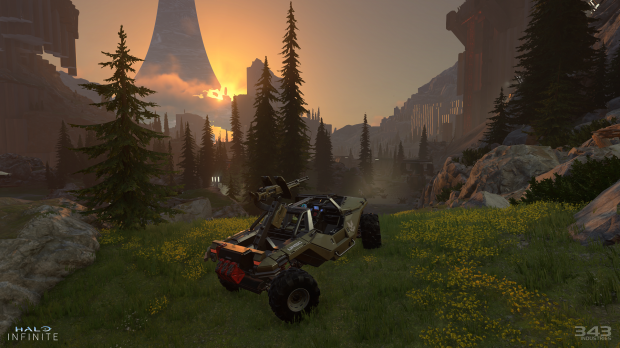
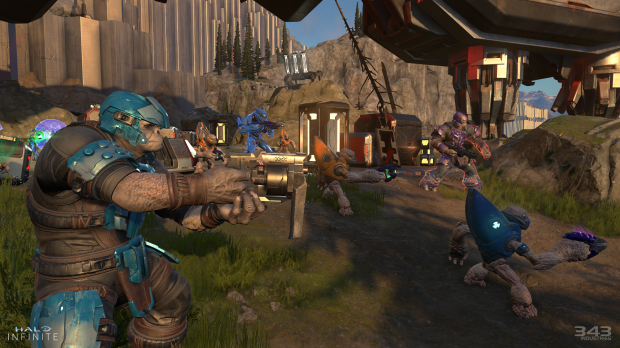
Read Also: Reminder: Microsoft doesn't care if you don't buy an Xbox Series X
These games are designed to keep you stuck in a digital ecosystem of services and purchases. It's similar to why Sony's big first-party games have tons of stuff to do--Ghost of Tsushima, for example, has lots of open-world style filler content. But unlike Sony, Microsoft has a much more tightly-knit service empire, and its games are built specifically with Game Pass retention in mind.
Halo: Infinite was built as a content extension of the Xbox framework. All of Microsoft's first-party games will release on multiple systems, including the Xbox One and new Xbox Series family, as well as Windows 10 PCs. They'll also be playable on mobile phones and laptops via Project xCloud streaming.
This kind of multi-platform approach isn't just for hardware, though, but also extends to the services that make this kind of ecosystem possible.
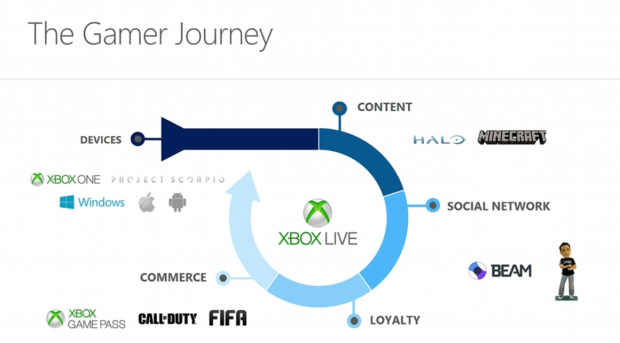
Microsoft's Gamer's Journey slide from 2017 shows how the Xbox business operates. Only now there's more access points, which include Game Pass.
As such, the biggest Xbox games are built with key tenants in mind. Replayability is a big recurring theme, because the longer you keep people playing, the longer they'll be stuck in the ecosystem. This is true regardless of how you access the content: If you play Halo: Infinite via Game Pass, you're more likely to keep paying over time to continue to play the content. If you're an Xbox One owner, you've already made the investment and Infinite is just another anchor point cementing you to the ecosystem.
In short, games are the glue that keeps consumers sticky in any given digital storefront/gaming ecosystem. The more content you buy and invest your time into, the more likely you are to stay on the platform and buy/spend more over time.
It's a kind of positive feedback loop that gives you content and makes Microsoft money.
Considering all of Microsoft's first-party games are coming to Game Pass, that means all of its games are built with the service in mind. Some are more influenced by Game Pass than others. Infinite, for example, has a lot more weight to a service like Game Pass than something like Obsidian's new AA game Grounded.
The more weight a game series has, the more it influences (and is influenced by) services.
This ultimately means that Microsoft's franchises and IPs will be molded in a way that benefits the Game Pass/engagement model. That's why we're seeing Halo, which has always been a first-person shooter first, morphing into a kind of FPS-RPG hybrid.
Other publishers like Bethesda have done similar things. Halo's new transformation is similar to what Avalanche did with RAGE 2.
There's also Wolfenstein Youngblood, which transformed the traditional singleplayer FPS series into a co-op live game with a content loop.
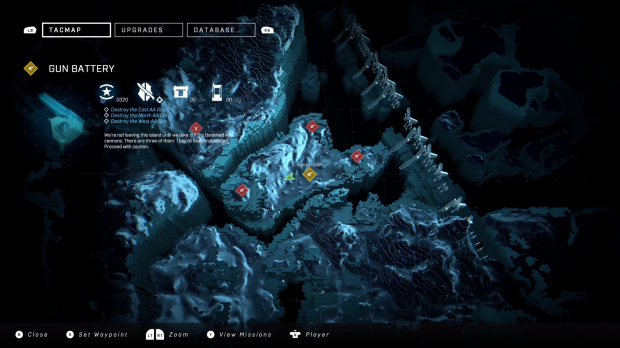
For the first time ever, Halo has an overworld map that lets you set waypoints, view and select missions, and even houses an upgrade tree.
Read Also: Halo: Infinite new weapons & guns guide: Grappling hook, DMR+AR & more
Halo: Infinite has lots of hallmarks of any RPG. There's cooldowns for equipment, a mechanic that's lifted right out of an MMO. Infinite also features a huge open-ended map that's peppered with objectives. You can set waypoints and go to certain locations to get rewards. It's a lot like an Ubisoft game where you complete missions and accrue currencies to progress.
Speaking of progression, Halo: Infinite also has an upgrade path that's lifted right out of an RPG. We don't know the specifics of this upgrade path.
The reality is that RPGs are more compatible with the live service/engagement model than shooters. That's why lots of F2P shooters have some sort of progression/upgrade path complete with skills and the like. That's what we're seeing here; Halo is getting RPG-ified so it plays more nicely with the kind of business model Microsoft cares about most.
Today's Xbox presentation felt less like a showcase for games and more like a big commercial for Game Pass. But that's exactly because it was. Game Pass is the biggest thing Microsoft has right now and has transformed its software/services business model from the ground up.
By extension, that means all first-party games are big advertisements for Game Pass. Come for Halo: Infinite, and maybe stay for the new Fable. It's the digital service equivalent of a store making you walk by tons of advertisements to get to the stuff you want or need. And it's working very, very well.
First-party games are now synonymous with these specific access points, and that means their game mechanics will also blend naturally with how the services operate. And considering Game Pass is a retention-based service, that means games will become more grindy and replayable in certain regards.
This is why we're seeing big franchises like Halo get transformed into a more engagement-friendly wrapper.
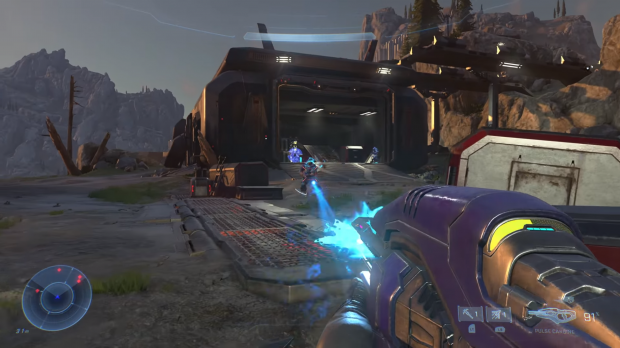
Make no mistake, though: Halo: Infinite is still very much a FPS. The combat is slick and fluid just like Halo 5, there's a new grappling hook that fundamentally changes the game forever, and there's lots of nifty new guns to blast enemies with. The core combat hasn't changed.
But the game's overall scope certainly has, and Halo: Infinite isn't just a name, but a descriptor. Halo is now a kind of infinitely-replayable sandbox of fun that could serve as the entry point to an ongoing live campaign that evolves over time.
Honestly that's very, very exciting.
Halo: Infinite releases this November alongside the Xbox Series X, and will also release on PC via Steam and the Windows 10 Store. It'll also be included free as part of Game Pass.


